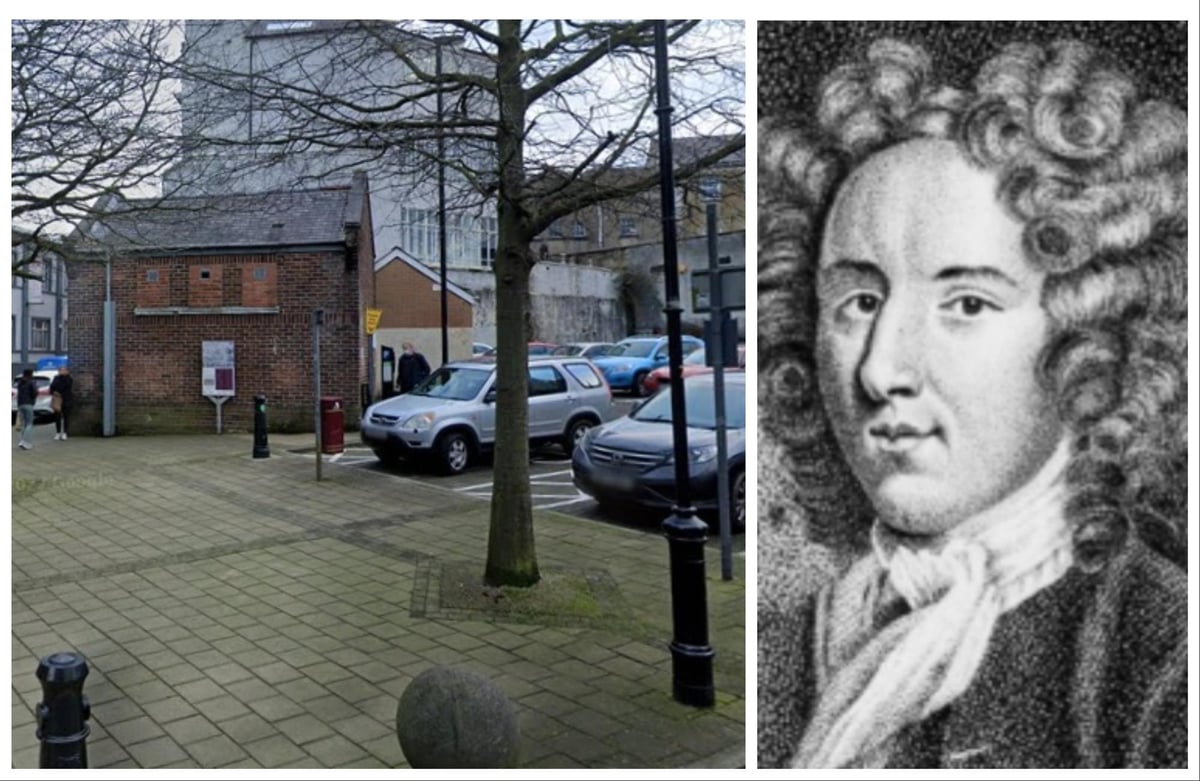Son of a local Church of Ireland clergyman, their home burned down in the 1689 siege of Derry. At 16 George entered Trinity College, Dublin – but dropped out to become an actor. His ‘Love and a Bottle’ is considered the first modern Irish play. His ‘The Constant Couple’ (1699) was very successful in London and Dublin. Farquhar was the last of the writers of sophisticated, bawdy comedy including women actors for the first time in English theatre. His ‘The Twin Rivals’ (1702), included Teague, an early stage-Irishmen. With army experience, he wrote one of his two best works, ‘The Recruiting Officer’ comedy (1706) – a major success in London. The script went into three editions that year. But he fell into hard times and ill health. His friend Robert Wilks, finding him down and out in London lodgings lent George twenty guineas (£21) and urged him to write a new play. Although terminally ill, George completed his masterpiece ‘The Beaux-Stratagem’ – the last great comedy of the Restoration age, which opened in London in March 1707 to great acclaim. But Farquhar’s own marriage seems to have been unhappy and the play made a plea to have divorce in England. Sadly George did not long enjoy this final success. He died tragically young that May and was buried at St Martin-in-the-Fields, London. Remember him when you walk in Society Street or Magazine Street. George Farquhar walked those streets 340 years ago. (Dictionary of Irish Biography: www.dib.ie)
